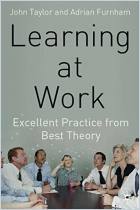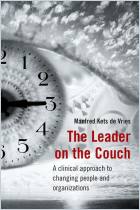
The Elephant in the Boardroom
The Causes of Leadership Derailment
ISBN: 9780230229532
Pages: 256
Recommendation
Psychology professor Adrian Furnham dissects bad leaders’ negative characteristics and reports on why many crash and burn, taking their employees and firms down with them. Furnham reports on the findings of hundreds of researchers who have examined maladjusted, incompetent, tyrannical, Machiavellian, narcissistic, sadistic, predatory and other dangerous leaders, including some who are just plain evil. getAbstract recommends this comprehensive – if at times academic – rundown to those who would prefer not to recruit malevolent managers and to anyone who must coexist with a decidedly bad boss.
Summary
About the Author
Adrian Furnham teaches psychology at University College London. An adjunct professor at the Norwegian School of Management, he has written more than 50 books and 800 journal articles.
























Comment on this summary